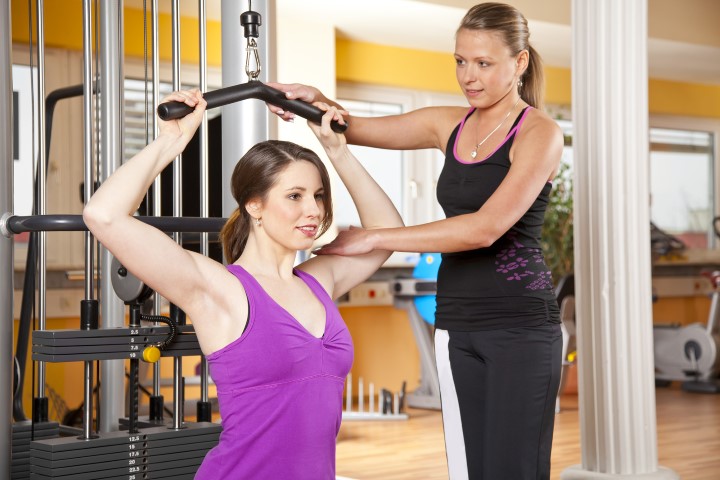Don’t be intimidated by the unfamiliar language of the gym – scan through our quick list and converse like a pro!
It’s your first day in the fitness facility and you’re raring to go. Your trainer, while helpful, rattles off in a language you don’t quite understand: the language of exercise and fitness. Bone up on the most commonly used phrases you’ll hear in your fitness community.

Basal Metabolic Rate
During a stage of rest, your body still burns energy. The BMR implies the fewest amount of calories your body needs to exhaust in order to sustain your current weight.
Circuit Training
This is simply a group of smaller, shorter workouts that has varying equipment. Warwick Women’s Workout offers such a workout to its clientele and helps improve cardio and endurance while working out in a timed atmosphere.
Lats
The long muscles on the side of your spine are your ‘lats,’ or latissimus dorsi. Got a bit of that under the bra back fat? If you work at toning your lats, among other muscles, you should be able to get that oft-neglected area toned in no time.
Obliques
If you’re looking for that slim waisted look (especially for bikini season), then your obliques are the muscles you’ll especially want to target. Located on either side of your abdominal muscles, the obliques help you bend and twist.
Plateau
The ‘plateau effect’ happens when your body is so used to a particular workout, that the regime slows down your weight loss. The quick fix to this problem is raising the intensity of your current exercise – or choosing a new one to give your body a taste of something different.
Quads
The hard working quadriceps femoris muscles – actually, a group of four – are the large ones directly at the front of your thighs. When you are engaged in walking, running, or squatting, the quads are doing their work.
Reps
Short for ‘repetitions.’ Simply put, a single exercise movement – such as a squat or lift – repeated.
Target Heart Rate
Once you get used to working out, it’s important to calculate your personal target heart rate. Ask your trainer for help in making this calculation. Performing exercise in your target heart rate helps you from overdoing it – or not working hard enough.



